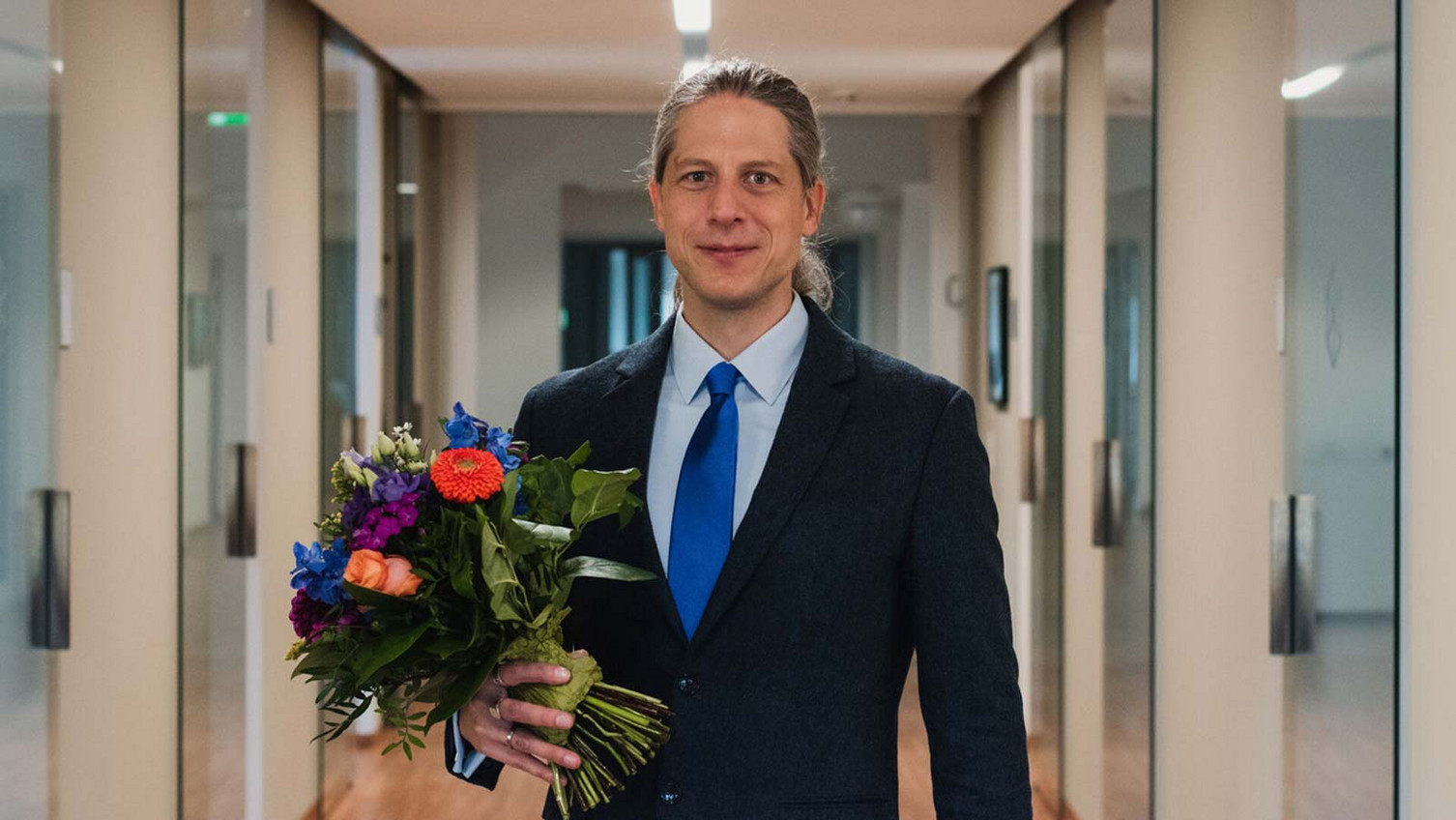New at Leuphana: Sebastian Wallot - What does reading mean?
2021-05-10 This line proves the point: we constantly read. The psychological act of reading is deeply ingrained in our human mind. Yet, surprisingly little is known about what actually happens between text, eye, and mind during reading. Sebastian Wallot, professor of psychology, in particular methodology and evaluation research, investigates an evasive everyday phenomenon.
Sebastian Wallot explores the reading of texts. He is interested in 'natural' reading; the kind you do every day when you read a newspaper article, a book, or a website, for example. "What I am most interested in," he says, "is how to capture the reading process, across different readers, languages, as well as textual and reading situations. And how we can draw conclusions from that about the level of competence of the readers, or whether or not they have understood what they are reading."
Psychological research on reading is divided into two research traditions: First, there is research primarily on perception. How do we generally perceive the environment? How does visual information travel from the eyes to the visual cortex in the brain? How do we perceive abstract symbols (such as the sequence of letters 'S u n') and then have them arrive in the mind as much richer information (namely as a bundle of images and associations)? The other research tradition is concerned with questions of processing: What happens in the mind? How does that stimulate the imagination, stimulate the thoughts, and at that point, what do we do with it?
“My aim is to combine both," says Wallot, describing his approach. "At the front-end, reading is very close to perception, which can be measured by eye movements: Which way is someone looking and how long does it take them to move on to the next page or the next word." Sebastian Wallot suggests that comprehension, that is, the mental act of understanding, should be interpreted as a link with which reading-as-perception and reading-as-processing can be brought together. He explains: "Ultimately, language is about understanding something in such a way that it changes us, but also provides us with new competencies within our world: to interact differently with other people or to act differently on our environment. Or even to comprehend things happening around us in a different way." This approach has proven to be very viable in numerous experimental series.
Sebastian Wallot points out that psychology of reading has not yet fully come to grips with certain aspects that are obviously part of the reading process, such as the concept of meaning. "The current abstract psychological understanding of language does not include meaning," he puts it, seemingly paradoxically. "The prevailing idea is that people have a kind of mental lexicon. It contains rules on how to understand language in principle, as well as all sorts of definitions, explanations of words and word properties. The assumption is that when we hear the word 'tree', for example, our mind opens the mental lexicon and then finds an entry like 'is made of wood and is tall and has leaves'. But that is circular reasoning, because words like 'wood' would then also have to be learned through a definition, and at some later point 'tree' appears in it again. This means that meaning must actually begin with something that has a basis outside the abstract description of language. Something that is outside of language, but which is capable of making contact with language."
Wallot is an expert in empirical psychology recognised throughout Europe, especially for studies on joint action and on non-linear time series analyses. In his publications, he illustrates that concepts such as meaning are difficult to grasp in psychology of reading not because the empirical tools are too inaccurate. It is rather that the empirical investigation of specific concepts, such as meaning, requires certain theoretical and methodological innovations.
This conclusion is characteristic of Wallot and research on reading, in that the results of both often contradict the intuitive conception of reading. "An example of this is the 'word frequency effect': the speed with which one reads a word is directly proportional to the frequency with which that word occurs in the speaker's personal language. The word 'become', for example, is read quickly; the word 'express' takes most people longer to read. This context plays an important role when reading individual words. When reading continuous texts, however, there is little left of the reading speed-frequency connection." Wallot pointedly says: "The building blocks we used to think we could build the reading process on blur for the most part when we put the whole thing in a larger context."
Sebastian Wallot completed his PhD in Experimental Psychology at the Department of Psychology at the University of Cincinnati (Ohio, USA) in 2011. After working as a research assistant at the Interacting Minds Centre at Aarhus University (Denmark), he moved to the Max Planck Institute for Empirical Aesthetics in Frankfurt a.M. in 2016. Since 2020, Wallot has been Professor of Psychology, in particular methodology and evaluation research, at the Institute of Psychology. His research has been awarded a DFG Heisenberg Professorship, among others. His most recent publications include "What the eyes reveal about (reading) poetry".

